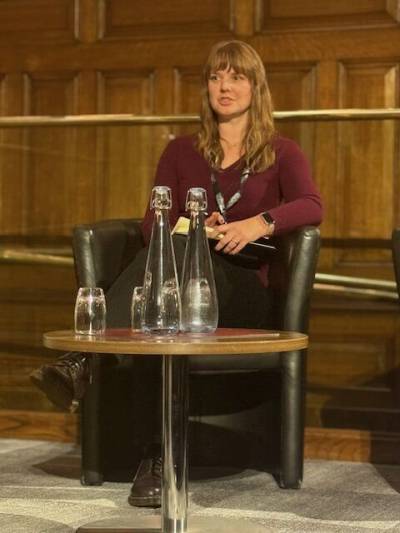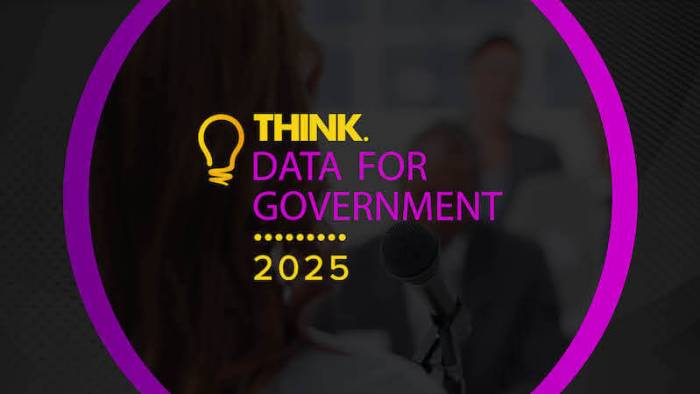Government organisations are under mounting pressure to build digital capability that can keep pace with rising demand, tighter budgets and increasingly complex public services. At a recent panel discussion at Think Digital Government, public and private sector experts warned that recruitment alone will not solve the capability gap.

For Trilly Chatterjee, head of product management at NHS England, the current market for digital talent is both a blessing and a challenge. Over 18 months, he recruited around 50 product managers – “a 50 percent growth in our overall pay gap in that area” – and saw a huge rise in both volume and variety of applicants.
“It really focuses the lens on us to actually think about what we really want in terms of capability, to be able to signal that in our campaigns,” he said. Clear job descriptions, robust processes and good candidate engagement “matter more” when the field is crowded and uneven.
But Chatterjee warned against seeing capability purely as a hiring problem. NHS England’s Transformation Directorate has set up four professional “centres of expertise” covering product management, delivery management, business analysis and software engineering. It works at three levels:
- the individual (skills and development)
- the team (how disciplines combine in multidisciplinary delivery)
- leadership and governance (orchestration, coordination, tools and standards)
“As professions, we don’t just think about people, we think about the authority context,” he said. Without reshaping structures and expectations, “government is a hard, hard environment to do these kinds of things,” and new digital talent will struggle.
Of the competencies he now values in public sector product people, he said: “The two key skills are to be irritatingly persistent… All of this is just helping ameliorate the pain of change.”
From Consultants to Shared Responsibility for Capability
Rheanna O’Donoghue, now education delivery director at Hippo, began her career as an English teacher before moving into policy, product and then delivery leadership. Her own journey underlines a key theme of the panel: capability is grown, not shipped in.
“It’s not about telling people what they don’t know. It’s about creating the right environment and giving people the right tools so that they can learn on the job,” she said, crediting leaders who “let me make many mistakes” and consultants who shared their expertise rather than hoarding it.
O’Donoghue (pictured above) pointed to the billions spent on external suppliers and argued that this must come with a return in skills, not just services. Suppliers, she said, have “a fundamental responsibility to be building capability whilst they’re working with you”, and “our civil servants absolutely should expect that – if they’re not doing it, we should hold them to account.”
That means writing capability into contracts, not treating it as a nice-to-have. “In their contract, it says that they want a place to be helping people with capability. So if you use that, you’ve got access to it. You should be doing that.”
She also urged government to be more creative about career paths – including placements out into industry and back in again – so that “people can go out into industry and still be a civil servant… and bring that in”.
Home-Grown Talent, “Nosy” People and Fear of Failure
For Emily Saunderson, head of profession for business analysis at the Department for Education, attitude beats a perfect CV.
If you liked this content…
“Skills can be learned, and they can be taught, and they can be taught badly, and they can be learned badly,” she said.
When recruiting, she looks for people who are willing to challenge: “People who are nosy, who are annoying, who ask the questions that nobody wants to be asked, but they’re saying the things out loud that need to be said. And we don’t do enough of that.”
Saunderson linked this to a wider cultural problem in government – a fear of getting things wrong and a belief that every service is uniquely special.
“The idea that everything we do is special – no, it isn’t. It just isn’t,” she said. Instead, teams should “identify that 80 percent that we all agree on and spend less time arguing about those 20 percent nuanced issues that we get hugely distracted by.”
On retention, she was blunt about the damage done by territorial leadership behaviours. After getting two people promoted, she was told they should be “showing more loyalty to their division”.
“I was horrified,” she recalled. “We’re all winners when people are better at their job… The value they have to that organisation is being able to deploy their brilliance in the right places at the right time.”
For Saunderson, this all adds up to a culture challenge more than a budgetary one. Leaders and capability heads must “set our standards and communicate them well” – including publicly through capability frameworks and service standards – so suppliers and staff alike know “this is how we work”.
Joined-Up Services Need Joined-Up Capability
Across the panel, there was a consistent message that digital capability cannot be built in silos – whether departmental, professional or commercial.
O’Donoghue stressed the need for “joined up services [and] joint government”, with people talking, sharing ideas and building a sustainable, cross-government community rather than retraining the same skills in every department.
Chatterjee said the job now is to sustain and scale the progress that’s been made: “You have to apply those options, and then you have to use them… to push the agenda, to get practice to the scale.”
That, he suggested, means professional communities “operating together as something with one voice”, spotting opportunities in tight fiscal times to embed capability expectations into every project, partnership and programme.








